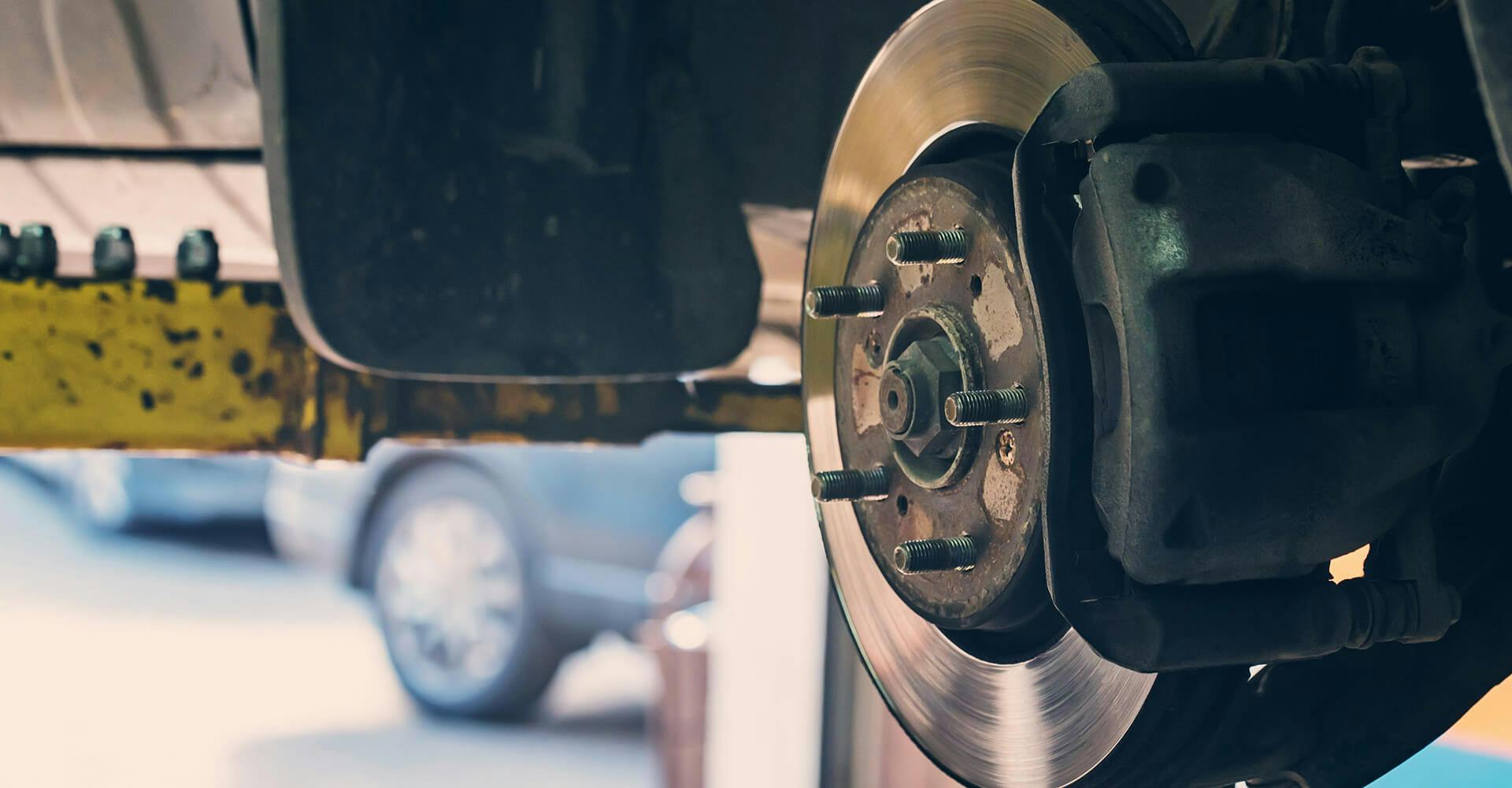
Brake Repairs in Hinckley
Enter Your Reg and Postcode to Compare Instant Brake Pad Replacement Costs in Hinckley
Loan Car
Collect & Deliver
Customer Drop-off
A family run business dedicated to offer great value & quality service for all makes of car. We want you to return to us so looking after you and your car is our aim. With our experience, the latest diagnostic tools and equipment we know we can offer you the best service around.
Your brakes are the most important part of your car. If they’re not working properly, you can’t slow your car down effectively. This leaves you at greater risk of an accident. If you notice any braking problems, you should book a brake pad replacement, brake disc replacement or other brake repairs near you as soon as possible.
How Do Car Brakes Work?
When you press down on the brake pedal, it activates a plunger in the master cylinder. This forces brake fluid through the system which, in turn, applies pressure on the other brake components. These are forced against the wheels and slow your car down.
There are two main types of brakes: disc brakes and drum brakes. Most modern cars use disc braking systems on the front wheels and drum brakes on the rear, while older cars use drum brakes on both the front and rear wheels.
Disc brake systems have two pads per wheel. These clamp down on the brake disc when the pedal is depressed. Pressurised brake fluid sends a plunger in the calliper forward, forcing the brake pads to squeeze either side of the brake disc. This slows your vehicle down.
Drum brakes work the same way, but use braking shoes instead of pads. These are stored in the steel brake drum itself and, when pressure is applied, the wheel cylinder expands. This component forces the brake shoes apart and towards the inside edge of the drum.
What Are Brakes Made Up Of?
A modern braking system is made up of the following parts:
- Brake lines which supply the brake fluid
- Brake pads. These blocks press against your brake discs to slow the car down
- Brake callipers. These house the brake pads and push them against the discs
- Brake discs. These are metal rotors that spin with your wheels
- Brake fluid which provides the pressure to push the brake pads against the discs
Most modern vehicles now use anti-lock braking systems (ABS) to make braking safer. They can identify wheels that are about to lock up and help you avoid a skid or loss of control under heavy braking. The only surfaces where ABS isn’t effective are ice, gravel or other slippery surfaces.
How Often Do I Need New Brake Pads?
Front brake pads last between 25,000 and 60,000 miles. Rear brake pads last longer because the front pads sustain about 70% of the braking load. However, they are unlikely to last beyond 60,000 miles.
How Often Do I Need New Brake Discs?
Brake discs can last between 80,000 and 120,000 miles on average, but you should change them every 50,000 miles. This means a mechanic may suggest changing your brake pads and discs together in order to make it more cost-effective for you in the long run. This is more likely if you usually brake in an aggressive manner because you can shorten the lifespan of both your brake pads and discs.
When to Book a Brake Pad Replacement
You should book a brake pad replacement if you notice any of the following warning signs:
- Squealing or grinding noise from your brakes
- Your brakes feel 'spongy' when you press the pedal
- Your car takes longer to stop
- You need to press the brake pedal more firmly to get your car to stop
- Your car pulls to one side under braking
- You feel a juddering or vibration while braking
- You can push the brake pedal all the way to the floor
- The brake pedal doesn't 'spring back' when released
If you notice any of these symptoms, you should book a brake pad replacement at a garage near you as soon as possible. You should also keep track of your brake pad replacement intervals so you don’t leave it too long between changes. While brake pads can last 60,000 miles, you should look to change them earlier to avoid excess deterioration.
How Much Do Brake Pads Cost?
The average UK brake pad replacement cost is £127.94 for front brake pads and £122.23 for rear brake pads, according to bookings made through BookMyGarage.
How Much Do Brake Pads and Discs Cost?
The average combined brake pad and disc replacement cost is £224 for front pads and discs and £249 for rear pads and discs.
Enter Your Reg Number and Postcode to Instantly Compare Brake Replacement Costs Near You
When you compare brake pad replacement deals through BookMyGarage, you can save up to 70%. Simply enter your reg and postcode to compare instant prices from garages near you and book the best deal. You can filter by price, distance, availability or reviews - whatever matters most to you. Then, select a date and time to complete the booking.
There’s no upfront payment and the transparent prices include the full cost of your brake pad replacement. You deal with the garage directly and you never have to worry about hidden extras. When you compare and save with BookMyGarage, you always get the best deal near you.
Enter Your Reg and Postcode to Compare Deals and Save Up to 70% on Your Brake Pad Replacement
How Long Does it Take to Get Brake Pads and Discs Fitted?
On average, it takes between 1-3 hours to fit a new set of brake pads and brake discs. A brake pad replacement usually takes between 30-60 minutes and a brake disc change takes roughly the same length of time.
Brake Check & Other Brake Repairs Near You
Sometimes, you just need professional reassurance that your car doesn’t have a brake problem. Other times, your problem is nothing to do with your brake pads or discs. That’s where our range of other brake repairs comes in.
You can book a brake fluid replacement or a brake inspection to determine what other brake repairs you need.
How can you save money (and the environment) while you drive?
As every garage owner will tell you, there are some tried and tested ways to cut down on your petrol costs (and consumption) while you’re out and about in Hinckley or beyond. One is to shut your windows. If you can hear that wind noise in your car it’s costing you more to drive. This is because the car becomes less aerodynamic and has to work harder to motor along. Removing a roof rack will improve your fuel efficiency for the same reason. Another useful tip is to combine short trips into one; each time you drive after your car has been parked for a while the engine will be cold and need to use a lot more fuel for the first 5 miles or so. If you do one trip from school drop-off to supermarket to office you’ll use far less fuel than if you do all those trips individually.
Featured in:









